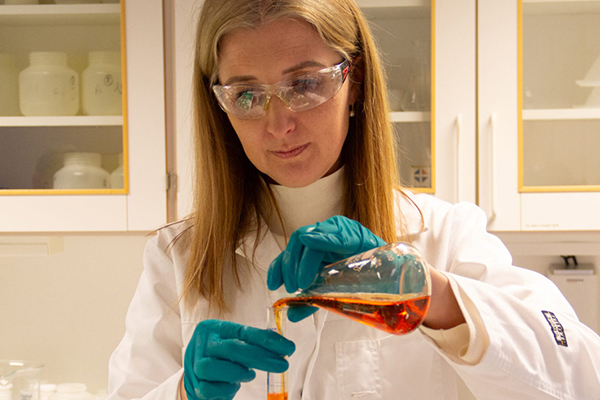Higher omega-3 and omega-6 levels in fish oil may lower the risk of up to 19 types of cancer

A recent study from the University of Georgia (UGA) suggests that omega-3 and omega-6 fatty acids – commonly found in fish oil – could play a significant role in reducing the risk of developing various cancers.
The findings, published in the International Journal of Cancer, indicate that these essential fatty acids, which are already known for their cardiovascular and mental health benefits, may also help ward off up to 19 different types of cancer.
The study analyzed data from over 250,000 participants in the United Kingdom over a decade. With almost 30,000 participants developing cancer during the study period, researchers found a clear association between higher omega-3 and omega-6 levels and a reduced risk of cancer.
Findings indicate that participants with higher omega-3 levels had a significantly lower incidence of cancers, such as colon, stomach and lung cancer, as well as other digestive tract cancers. Additionally, elevated omega-6 levels were linked to lower rates of 14 different types of cancer, including brain, malignant melanoma and bladder cancer.
“Higher omega-3 and omega-6 levels were associated with lower rates of cancer,” said Yuchen Zhang, lead author of the study and a doctoral student in UGA’s College of Public Health. “These findings suggest that the average person should focus on getting more of these fatty acids in their diets.”
While omega-3s and omega-6s are essential for human health, the study underscores that most individuals do not consume adequate amounts through diet alone. Fatty fish, nuts and some plant oils such as canola oil are sources of these beneficial fats. This gap in dietary intake is one reason why fish oil supplements have become popular. These supplements are often used to support heart health, reduce cholesterol and improve brain function, and the new research highlights another compelling reason to consider them as part of a regular health regimen.
Interestingly, the study also found that the positive effects of omega-6 fatty acids were more pronounced in younger participants, especially women. This suggests that dietary adjustments may have different impacts depending on age and gender.
“For women, it’s an easy decision: Eat more omega-3,” said Kaixiong Ye, corresponding author of the study and an associate professor in UGA’s Franklin College of Arts and Sciences.
The researchers also note that the benefits of omega fatty acids are independent of other common cancer risk factors, such as BMI, alcohol consumption or physical activity. This could make fish oil supplements an accessible option for many seeking to reduce their cancer risk.
Despite the findings, the researchers caution that fish oil supplements may not be suitable for everyone. Some previous studies have raised concerns about a potential increase in the risk of prostate cancer with high omega-3 intake, though this study did not find conclusive evidence of such an effect.
Now that you've reached the end of the article ...
… please consider supporting GSA’s mission to advance responsible seafood practices through education, advocacy and third-party assurances. The Advocate aims to document the evolution of responsible seafood practices and share the expansive knowledge of our vast network of contributors.
By becoming a Global Seafood Alliance member, you’re ensuring that all of the pre-competitive work we do through member benefits, resources and events can continue. Individual membership costs just $50 a year.
Not a GSA member? Join us.
Author
Tagged With
Related Posts

Innovation & Investment
Circular economy: New tech turns fish waste into valuable pharma and cosmetic ingredients
SINTEF scientists are developing new technology to convert fish byproducts into high-demand ingredients, promoting a circular economy.

Intelligence
Eating small fish whole can prolong life expectancy, Japanese study finds
Study finds that regularly eating small fish whole significantly reduces the risk of death from all causes and cancer in Japanese women.

Responsibility
Can swapping red meat for a ‘forage fish’ diet save lives?
A study says adopting a forage fish diet could prevent up to 750,000 deaths from diet-related disease in 2050 and benefit the Global South.

Responsibility
Can nutrition-sensitive aquaculture futureproof fish farming?
Research finds that nutrition-sensitive aquaculture can benefit public health through diverse, nutrient-rich seafood, and enabling equitable access to it.



